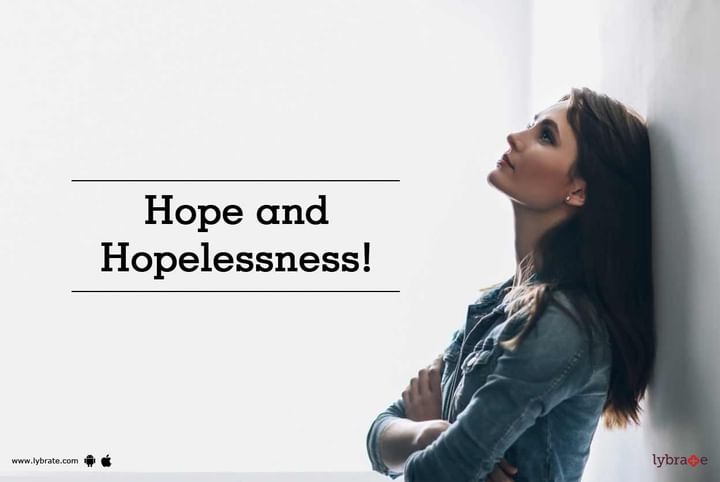Hope and Hopelessness!
The ability to engage in goal-directed behavior despite exposure to stress is critical to resilience. Questions of how stress can impair or improve behavioral functioning are important in diverse settings, from athletic competitions to academic testing.
Controllability is a key factor in the impact of stress on behavior: learning how to control stressors buffers people from the negative effects of stress on subsequent cognitively demanding tasks. In addition, the impact of stress on cognitive functioning depends on an individual’s response to stressors: moderate responses to stress can lead to improved performance while extreme (high or low) responses can lead to impaired performance. Stress is part of life. Pursuing goals despite exposure to stressors, or better yet, showing enhanced functioning in response to stress, are abilities that are fundamental to survival and resilience.
For a broad range of daily goals, it is critical to know what type of stress can help or harm behavioral functioning. Musical concerts, athletic competitions, and academic testing are all settings in which stress may either impair performance or fuel pursuit of goals. To perform optimally, healthy humans must expose themselves to the types of stress that promote the most enhanced functioning possible. The effects of stress on cognitive functions, specifically, may mediate the helpful and harmful effects of stress in complex domains. Stress has yielded evidence for both positive and negative effects of stress and stress hormones on cognitive functions.
Working memory, a function thought to be very important for executive function , is particularly sensitive to such effects. Stress exposure can lead to improved performance and the same types of stress exposure can cause impaired performance. Controllability of stressors is also a key factor that influences how stress affects behavioral performance.
In India, I personally feel, there is low controllability which is a characteristic of stress that has been explored in “learned helplessness”. We notice people exposed to equivalent stress but they differ on whether or not it is possible to learn to control stressors. Learned helplessness research has provided evidence for the harmful effects of exposure to uncontrollable stress, as well as the protective effects of having behavioral control over stressors. Specifically, while exposure to uncontrollable stress leads to passivity, negative affect, and disrupted performance on subsequent cognitively demanding tasks, being able to learn how to behaviorally control the same stressor buffers you from these negative effects. Controllability of, and individual responses to, stressors influence the effects of stress exposure on cognitive and behavioral functioning.
Hope and hopelessness are two sides of the same coin. A person going through feelings of hopelessness can easily overcome it with cognitive thinking, healing, medication, behavioral therapy and positive attitude. In this article, we will quickly go through the reasons for feeling hopelessness and ways to come out of the such a mental state.
- Feeling Alienated- Alienated individual often go through a feeling that they are somehow different from others. As an extension of the feeling, they often include themselves in the group of unworthy of support, love, and care. Thus, they shut themselves off to refrain from further rejection and pain.
- Forsakenness- Forsakenness essentially means that an individual finds himself alone in the time of greatest need. This can lead to utter hopelessness leading to depression and lonely.
- Uninspired- This feeling of lack of inspiration can lead to hopelessness. This is especially witnessed in the underprivileged and minority category due to lack of opportunities and right role model within the social circle.
- Powerlessness- This is a major cause of hopelessness in one’s life. The feeling of getting stuck or unable to script the story of one’s life can lead to demoralization. The feeling of powerlessness can crop in when a person finds a hindrance to navigate the direction of their life as per their choice.
- Oppression- Oppression can result from the day to day pressure of life, leading to a feeling of getting crushed or flattened.
- Limitedness- Limitedness can crop into an individual who is struggling for survival coupled with limited abilities in establishing the desired goal. This is extremely common among handicaps with poor financial stability. The feeling of existing in the world without the adequate facilities can lead to a feeling of hopelessness, despondency, and despair.
- Captivity- Emotional and physical captivity can result in hopelessness. Often prisoners fall into this category. A woman might also go through this feeling if she is going through an abusive relationship leading to unhappiness.
Getting hope back in life:
Overcoming the feeling of being doomed can be easily achieved by studying the facts. A patient receiving a fatal diagnosis from a doctor always has the option to study further about the diagnosis and take multiple consultations instead of giving in.
The feeling of powerlessness mostly happens because of labeling, positive discounting and personalization. An individual suffering from self-blame leading to discounting the positive aspects of his own self can practice reattribution. This is nothing but studying the reasons of negative emotions and carefully analyzing them.
Labeling, on the other hand, can be countered by mastering certain skill sets which an individual is bad at. For instance, if a person is often called as stupid, he should analyze why is he labeled so. Post the analysis he or she can work on getting that one thing right for which he has been labeled. If you wish to discuss any specific problem, you can consult a psychologist.



+1.svg)
